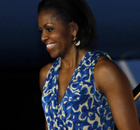Opinion
Stop piling up greenbacks to build a more balanced economy
(China Daily)
Updated: 2010-04-14 10:22
 |
Large Medium Small |
In recent months, US economist Paul Krugman wrote several op-ed pieces calling on the US government to take on China. He is a respected economist, but his campaign is not only counter-productive in terms of solving the China-US trade dispute but also based on flawed economics.

In 2009, China registered a growth rate of 8.7 percent, which was hailed by the international community as a significant contribution to the global recovery. However, for Krugman, "most of the world's large economies are stuck in a liquidity trap China, by engineering an unwarranted trade surplus, is in effect imposing an anti-stimulus on these economies. China's policy of keeping its currency, the renminbi, undervalued has become a significant drag on global economic recovery."
| ||||
This is because China's imports have held out quite well, which in turn was a result of the Chinese government's massive stimulus package. For example, in real terms, in 2009 the growth rate of China's exports to the rest of the world was -10.5 percent and that of its imports was 1.7 percent.
As an elementary economic issue, when calculating the contribution of the trade balance to overall economic growth, the important thing is the changes in trade balance instead of the level of trade balance. Because China sucked in imports at a greater pace than it pushed out exports, it made a positive contribution to global recovery. As pointed out by Pieter Bottelier, a former head of China mission of the World Bank, "China did more than any other country to pull the world out of the recession". This is a fundamental fact that Krugman should not brush aside so easily.
Krugman did not elaborate on why by running trade surplus, China has been "imposing an anti-stimulus" on the large economies that are in a liquidity trap. It is certainly true that if the current account deficit increases, it will offset the effects of the stimulus on GDP. However, unless the deficit increases as a result of China's current account surplus with the US, China's reduced current account surplus with the US will exercise no offsetting impacts on the US government's stimulus.
Krugman claimed that his "back-of-the-envelope calculations suggest that for the next couple of years Chinese mercantilism may end up reducing US employment by around 1.4 million jobs".
"Back-of-the-envelope calculations"? I am stunned by this frivolous attitude towards this vital issue.
China's economic structure is vastly different from that of the US. China's exports to the US rarely compete with US products. We need to check Krugman's back-of-the-envelope calculations to see whether his accusation holds water.
The focal point of the Sino-American dispute is the renminbi exchange rate. Krugman claimed assertively that "the renminbi is grossly undervalued, not through questionable estimates that can be endlessly debated, but on a PPE (proof of the pudding is in the eating) basis: the current value of the renminbi is consistent with massive artificial capital exports, and that's that".
This statement is very revealing. First, Krugman is not bothered by mind-numbing estimations. Only mediocrities are. Second, in his view, all estimates on the renminbi available are "questionable" and "can be endlessly debated".
I am sympathetic with this view of Krugman's on the unreliability of the available estimates on the deviation of the renminbi exchange rate from its "right level".
The question is, if this is the case, how can Krugman be so sure that the renminbi is grossly undervalued and the undervaluation is as great as between 20 and 40 percent?
Krugman accused China of "engaging in massive capital export - artificially creating a huge deficit in China's capital account". China is running a current account surplus with the US, which by definition means that China is exporting capital to the US. In my view, the most important reason why China should not run a current account surplus consistently against the US is simply because China is one of the poorest countries in the world, and should not engaging in financing the consumption binge of the richest country in the world.
China is running "twin surpluses" - current and capital account surpluses. It means that while importing capital in the form of FDI and foreign debts with high costs, it exports capital in the form of piling up greenbacks and US treasuries with low yields or no yields at all. By doing so, China has been engaging in a massive wealth transfer to the US. How could Krugman argue that China is "making everyone else poorer"?
The losses incurred in financial transactions between China and the US could be trivial compared with the capital losses China may suffer in the future. China has parked its savings in the US treasures while US fiscal debt ratio has been surging. Following the upcoming structural changes such as aging, China will run down its foreign exchange reserves sooner or later. A very big question for China is: When it needs to redeem its treasuries, can America honor its debt obligations?
History may show that China is the biggest victim of the post-Bretton Woods international monetary system, a system of the dollar standard. Under this system, everything hinges on the integrity of the American government and the Fed, or the speed of their printing press. The American government and the Fed have let down those who have trust in them.
For its own sake, China should stop further piling up greenbacks massively. To do so, the PBOC should reduce its intervention in the foreign exchange market. This means that the renminbi may appreciate, which in turn will cause some troubles for some exporting enterprises. However, with a more balanced economy, China should be able to achieve a sustained growth for another decade.
Yu Yongding is president of the China Society for World Economics.













